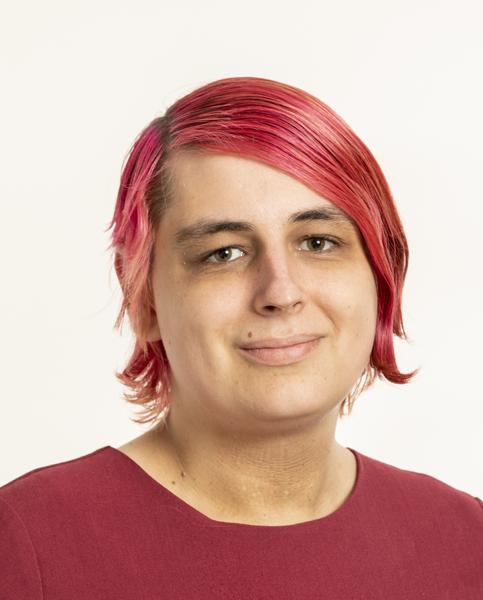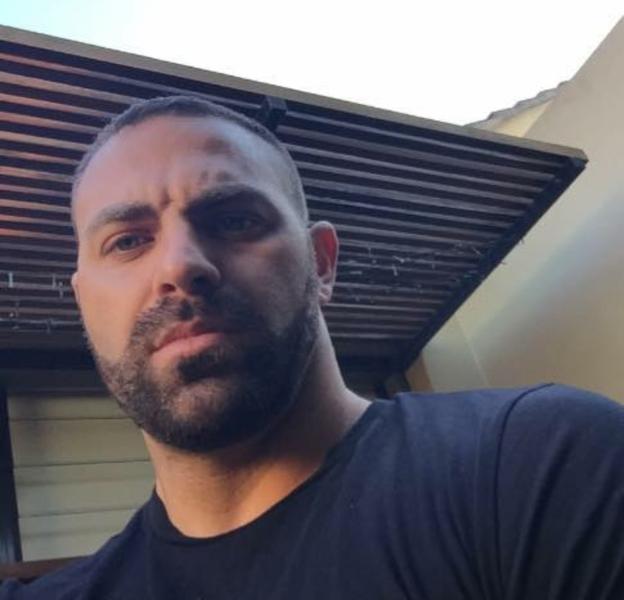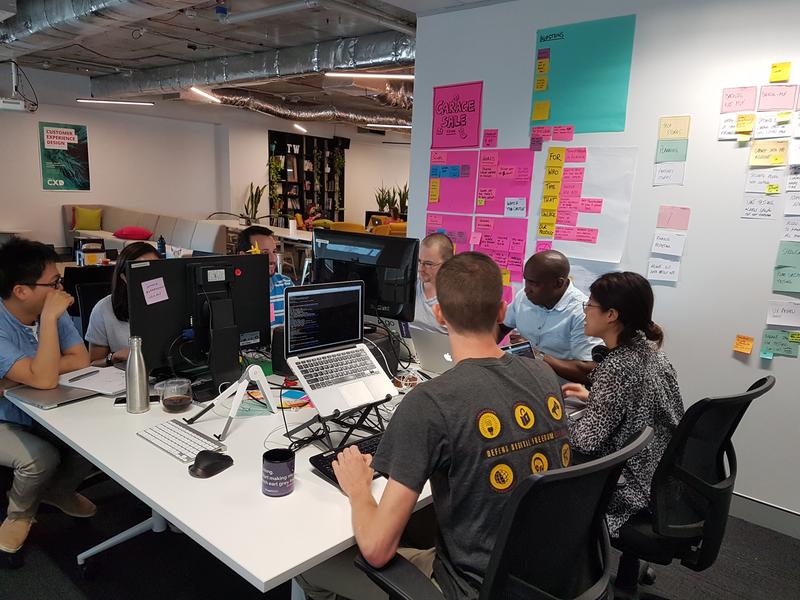‘Appetite for inclusion’: How ThoughtWorks helps LGBT employees be themselves
- 13 February, 2019 09:36

“2014 me didn’t know he was a girl,” recounts Effy Elden, a software developer based in Melbourne. “But then…well, the Internet happened.”
Until then, Elden, 24, had simply “gone along” with being a boy; until she moved from Perth to Victoria, met a boy and found Twitter.
On social media she met “actively, proudly, wonderfully queer people, with diverse sexualities, genders, and identities” and begun communicating with “pansexual people, polyamorous people, and most importantly trans people”.
Within a year, Elden came to the realisation: “she was a girl”.
“This was a hard thing to realise, and harder still to deal with,” Elden writes. “[I] knew the hardships, discrimination, and abuse faced by most trans people for the rest of their life after coming out.”
The adversity is very real. According to Telethon Kids Institute research four in five young transgender people in Australia have self-harmed (compared with one in ten adolescents in the general population), nearly half have attempted suicide, and three-quarters have been diagnosed with depression.
When old enough to enter the workforce, trans people are often forced to face more distress. In Australia many report difficulty in securing employment, being fired after announcing their intention to transition and, as a 2013 BeyondBlue survey heard, being forced to resign “because their peers made life unbearable for them”.

Workplaces don’t need to be so unwelcoming, however. Some, like global software consultancy ThoughtWorks, Elden’s employer, insist on maintaining an inclusive working environment.
In ThoughtWorks Elden says she has found an employer with a genuine “appetite for inclusion and making people feel welcome”. The fact she shared her deeply personal story on the company’s internal blog is testament to that.
As Elden describes it, the company is “somewhere where I feel like I can truly be myself and still contribute to making the world a better place”.
It didn’t happen by accident. The culture of inclusion is deliberate and designed, from the bold, top-down company-wide policies to the minutiae of company systems.
‘Finally found my tribe’
ThoughtWorks has more than 4,500 employees working in 41 offices in 14 countries. Founded by Roy Singham in the early ’90s, it has a clear mission statement: “to better humanity through software and help drive the creation of a socially and economically just world”.
The company – which Singham sold in 2017 to focus on activism work – has been dubbed “Roy’s Social Experiment,” operating on the belief that culture trumps business model in the long-term.
“We invest in creating a workplace where everyone feels supported no matter their individual circumstances,” company spokespeople say. But unlike many companies trumpeting their ‘values’, it’s fair to say ThoughtWorks practices what it preaches.
As Singham once joked: "we have been accused of disregarding our mantra of diversity by not hiring socially-ignorant people".
“ThoughtWorks is genuinely a culture that openly talks about everything and one that is inclusive and not exclusive,” says Nathan Urquhart, a project manager and business analyst, who has been with the company since 2017. “We also have a feedback culture and if something is said which makes any of us uncomfortable we speak to the people who made us feel that way and openly discuss it.”

Urquhart grew up in a “very white town” in the UK, where he “didn’t notice any diversity there because there wasn’t any!” After coming out as gay to his mum on his return from university, he was asked to leave home. After “desperately navigating life with a skewed sense of confusion about who I should and shouldn’t be” he found some stability in a field he excelled at, IT.
“While I never felt afraid to hold my boyfriend’s hand when I was walking down the street, in the industry I was never honest about my sexuality. I was young. There was a different generation in the IT industry. I was too scared to be myself,” he says.
The feeling is not uncommon among LGBT people. A 2018 survey by UK charity Stonewall found one in five LGBT staff had been the target of negative comments or conduct from work colleagues over the last year because they are LGBT. The same report found more than a third of LGBT staff have hidden or disguised that part of them at work because they were afraid of discrimination.
While he came out at other workplaces, Urquhart says it “wasn’t until ThoughtWorks that I felt I was 100 per cent able to be myself and feel accepted at work”.
Paying attention
Earlier this year, ThoughtWorks was named as one of only two technology companies (along with Fujitsu) on Stonewall’s Top 100 LGBT-inclusive employers index for 2019. The ranking is based on a range of factors including policies, procurement, community engagement and leadership.
“The ThoughtWorks Australia anti-harassment policy is very strong and worded well, and specifically includes policies around gendering trans people correctly, which is surprisingly rare and very welcome,” Elden tells CIO Australia.

“We pay a lot of attention to the language we use regarding gender, in a way that ensures that non-binary people are included, for example, using ‘non-men’ instead of women. This commitment is extended to our staffing systems, where I was delighted to find that I could set a custom gender, and select multiple sets of pronouns that I use. This is very rare on almost any system,” she adds.
The company’s people team is now looking at including information about pronouns and non-binary genders in its induction pack for future starters. This proposal came out of an office email thread Elden started about trans and gender diverse issues, to which she received “very positive responses”.
Other threads have started, with subject lines like: Where are you from? Is it okay to ask this? Creating environments safe for all with inclusive behaviours and language.
“These emails start huge threads where we talk openly and share our experiences,” Urquhart, who once represented England at the Gay Soccer World Cup, says.
A ThoughtWorks Melbourne LGBTIQA social club has recently been founded, with regular social events planned, as well as a group called Intertwined, made up of people from communities that remain underrepresented or marginalised in tech, and their allies.
The group aims to “break down diversity silos” and “shape best practice and policy” around diversity and inclusion. Once established it aims to have representation across age, race, gender, disability, faith, sexuality, neurodiversity, social mobility and mental health.
The company also hosts Pecha Kucha (a snappy presentation style in which 20 slides are shown for 20 seconds each) evenings, where staff present on topics which have included ‘homophobia in soccer’ and ‘the Black Panther movie, why it was so good: inclusion and gender’. The transgender flag now hangs alongside the Melbourne office’s rainbow flag.
The word is getting out. “I recently referred someone for a developer role, who was specifically interested in working for ThoughtWorks because it felt like a safe and welcoming place for trans people,” Elden says.
More than any specific initiative, however, Elden and Urquhart most appreciate the openness, honesty and empathy of their colleagues at all levels.
As Urquhart puts it: “I finally found my tribe”.

